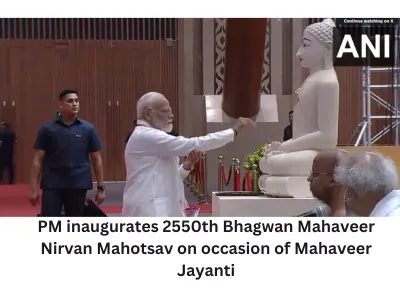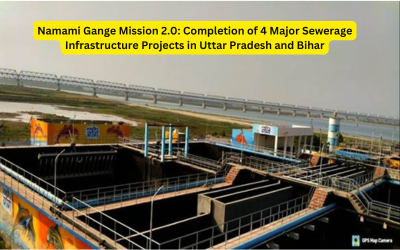Union Home Minister and Minister of Cooperation, Shri Amit Shah, addressed the Official Language Diamond Jubilee Celebrations and the 4th Akhil Bharatiya Rajbhasha Sammelan in New Delhi today. During the event, he unveiled the Diamond Jubilee Special Issue of the ‘Rajbhasha Bharati’ magazine, which was specially prepared for the occasion.
Additionally, Shri Amit Shah released a commemorative postage stamp and coin to mark the Diamond Jubilee. He also presented the Rajbhasha Gaurav and Rajbhasha Kirti Awards. On this occasion, the Home Minister launched the Bharatiya Bhasha Anubhaag (Indian Languages Section).
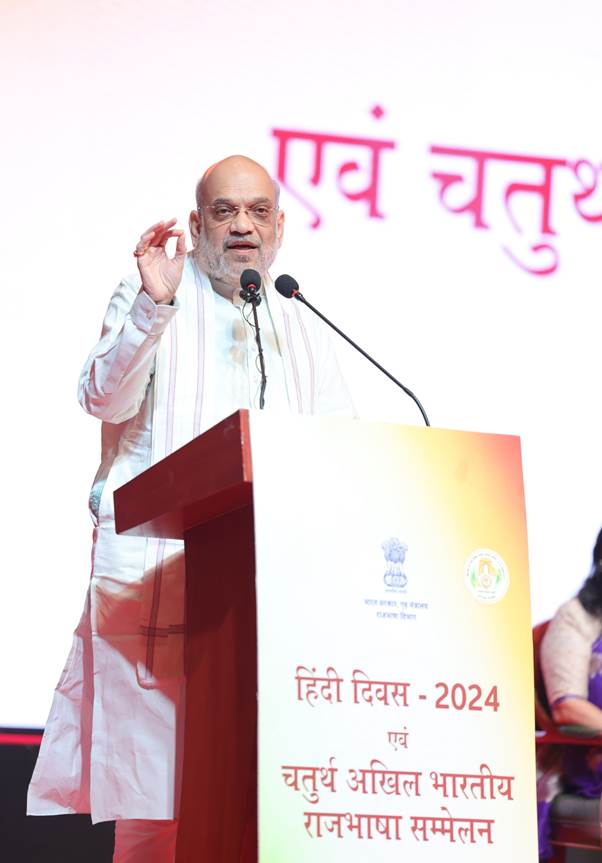
In his address, Shri Amit Shah emphasized that the past 75 years have marked the acceptance of Hindi as the official language, serving as a means to preserve and promote India’s traditions, culture, languages, literature, art, and grammar by linking all local languages. He noted that Hindi’s 75-year journey is now at the cusp of achieving its goals, and today is the day to elevate Hindi as a language of communication, for the people, in technology, and on the international stage.
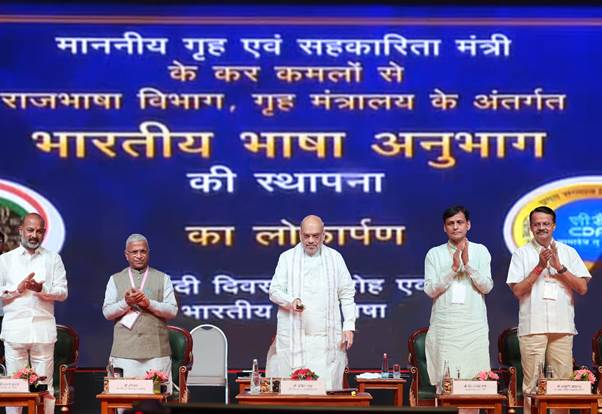
The Union Home Minister announced the inauguration of the Indian Languages Section today. He remarked that we are witnessing the beginning of something new, akin to planting a small seed that will soon grow into a large Banyan Tree. He expressed that this section will become a center for the protection of our languages in the coming years.
He also mentioned that the Indian Languages Section will serve as a supplementary part of the Department of Official Language, emphasizing that the promotion of the official language cannot occur without strengthening all our local languages and establishing a dialogue between the official language and other Indian languages.
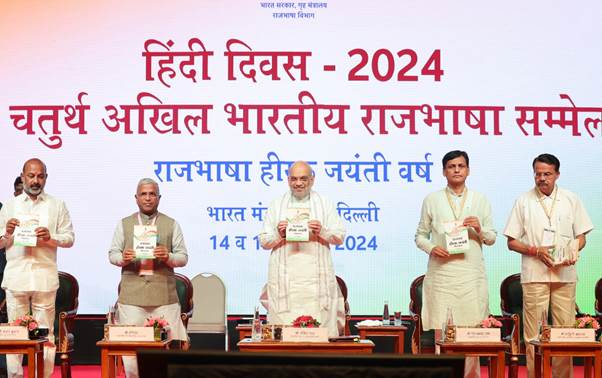
Shri Amit Shah emphasized that there can never be competition between Hindi and local languages, as Hindi is a friend to all local languages. He stated that Hindi and local languages complement each other, and this harmony will be strengthened through the Indian Languages Section. He mentioned that any article, speech, or letter in Hindi will be translated into all the languages of the country by this section. Similarly, literature, articles, and speeches from all languages will be translated into Hindi, which is essential.
The Union Home Minister highlighted that those who do not embrace Swaraj (self-rule), Swadharma (one’s own duty), and Swabhasha (one’s own language) cannot free their future generations from a slave mentality. He explained that Swabhasha is integral to Swaraj. He warned that nations and people who fail to protect their languages become disconnected from their history, literature, and culture, leading future generations to live with a slave mentality.
Shri Shah stressed the importance of adhering to Shivaji Maharaj’s principles of Swaraj, Swabhasha, and Swadharma even after 75 years of independence. He noted that Prime Minister Shri Narendra Modi has emphasized primary education in the mother tongue in the new education policy, as it is the easiest language for children to process linguistic expression, thinking, understanding, reasoning, analysis, and decision-making.
Therefore, Prime Minister Modi has placed great importance on education in the mother tongue. The Home Minister declared that today is the day to strengthen all Indian languages and make the official language the connecting language of the country, enabling us to conduct our nation’s work in our own languages.
Shri Amit Shah acknowledged Hindi’s significant contribution to the freedom movement, noting that one of the main reasons for the failure of the 1857 revolution was the lack of a connecting language. He described India as a geo-cultural rather than a geopolitical country, with culture being the link that unites the nation. He warned that losing our languages would endanger the unity of the country.
The Union Home Minister pointed out that leaders like Dr. Bhim Rao Ambedkar, C. Rajagopalachari, Mahatma Gandhi, Sardar Vallabhbhai Patel, KM Munshi, Lala Lajpat Rai, Netaji Subhash Chandra Bose, and Acharya Kripalani, who promoted Hindi, came from non-Hindi speaking areas. Despite having different mother tongues, they recognized Hindi as a medium to unite the country and made it a symbol of national unity by adopting it as the official language.
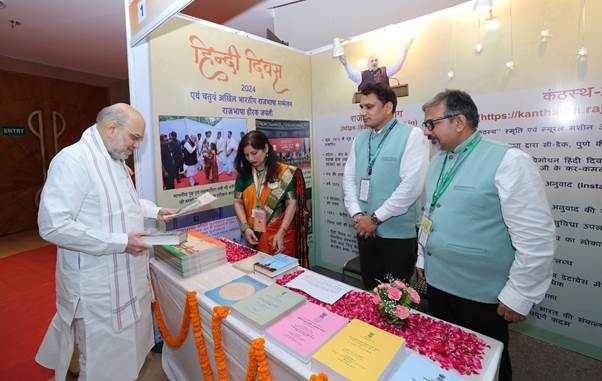
Shri Amit Shah emphasized that mothers play a crucial role in preserving our languages. He urged parents to speak to their children in their mother tongue, ensuring the survival of our languages. He expressed confidence that our languages will continue to serve the nation and the world for a long time. He stated that the future belongs to the official language and other Indian languages, and no one can enslave the country or its languages anymore.
The Union Home Minister and Minister of Cooperation highlighted the efforts of the Department of Official Language in making Hindi inclusive and acceptable. He compared Hindi to the sacred Ganges, stating that it cannot be polluted by the assimilation of words from other Indian languages. He noted that many words from local languages have been accepted into Hindi, and vice versa. He mentioned the inclusion of words from every Indian language in the Shabd Sindhu dictionary, aiming to make Hindi acceptable, flexible, and conversational. He expressed confidence that the Shabd Sindhu dictionary will become the world’s largest dictionary before the next Lok Sabha elections.
Home Minister @AmitShah extends greetings on #HindiDiwas today.
— All India Radio News (@airnewsalerts) September 14, 2024
In a social media post, Mr Shah says all Indian languages are the country’s pride and heritage, and without enriching them, progress is not possible. #हिंदी_दिवस pic.twitter.com/nu2OAwMbvD
Shri Amit Shah also mentioned that under Prime Minister Modi’s leadership, the Central Government is promoting the use of Hindi in education, technical education, and the judiciary. He advocated for advancing Hindi through bold acceptance rather than struggle. He noted that many Supreme Court judgments have been translated into various Indian languages.
He highlighted that states like Rajasthan, Uttar Pradesh, Madhya Pradesh, and Uttarakhand have made the entire medical education curriculum available in Hindi. He added that efforts are underway to prepare engineering curricula in about 13 Indian languages, and in the coming days, Hindi will also become the language of research.
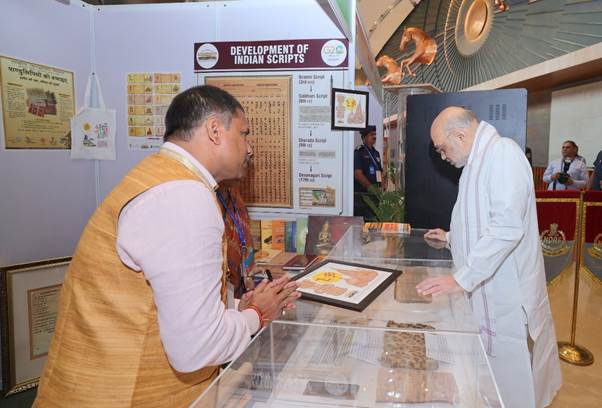
The Union Home Minister stated that under Prime Minister Shri Narendra Modi’s leadership, the roadmap to increase the acceptability of Hindi is progressing successfully. He highlighted that the Prime Minister has boosted the acceptance of Hindi by confidently and proudly delivering his addresses in Hindi on the world’s biggest stages.
He recalled that when former Prime Minister Atal Bihari Vajpayee addressed the United Nations General Assembly in Hindi, it astonished the world. Shri Shah noted that today, Hindi has become a language of the United Nations and is the second language in more than 10 countries. He emphasized that Hindi is now on its way to becoming an international language.
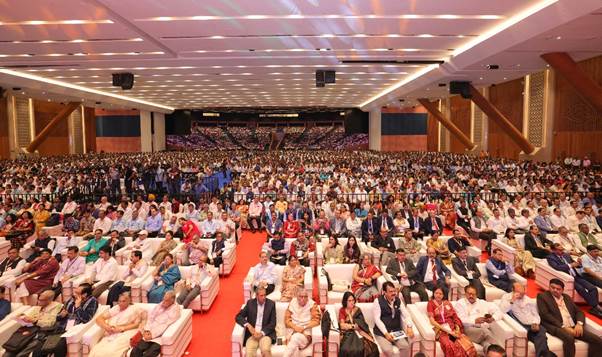
Shri Amit Shah emphasized that the strength of India’s languages is intertwined with Hindi. He noted that files and correspondences in the Ministry of Home Affairs and the Ministry of Cooperation are now being written in Hindi. He highlighted that language is a form of expression, and it is most powerful when it is in one’s own language.


